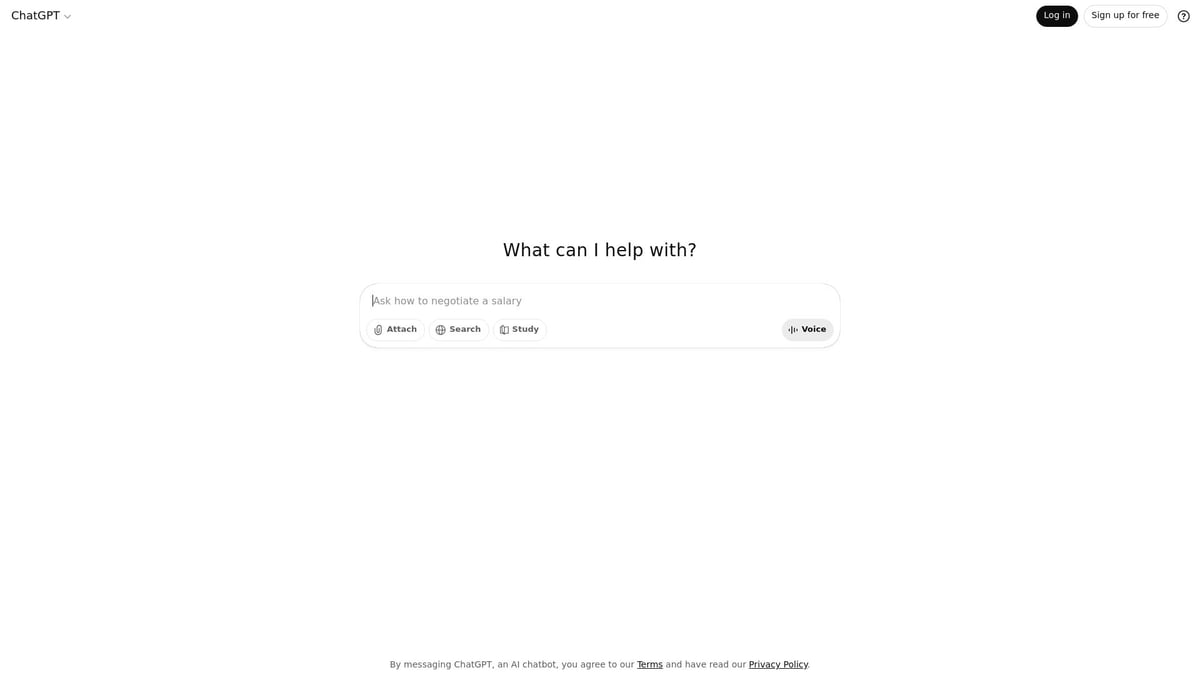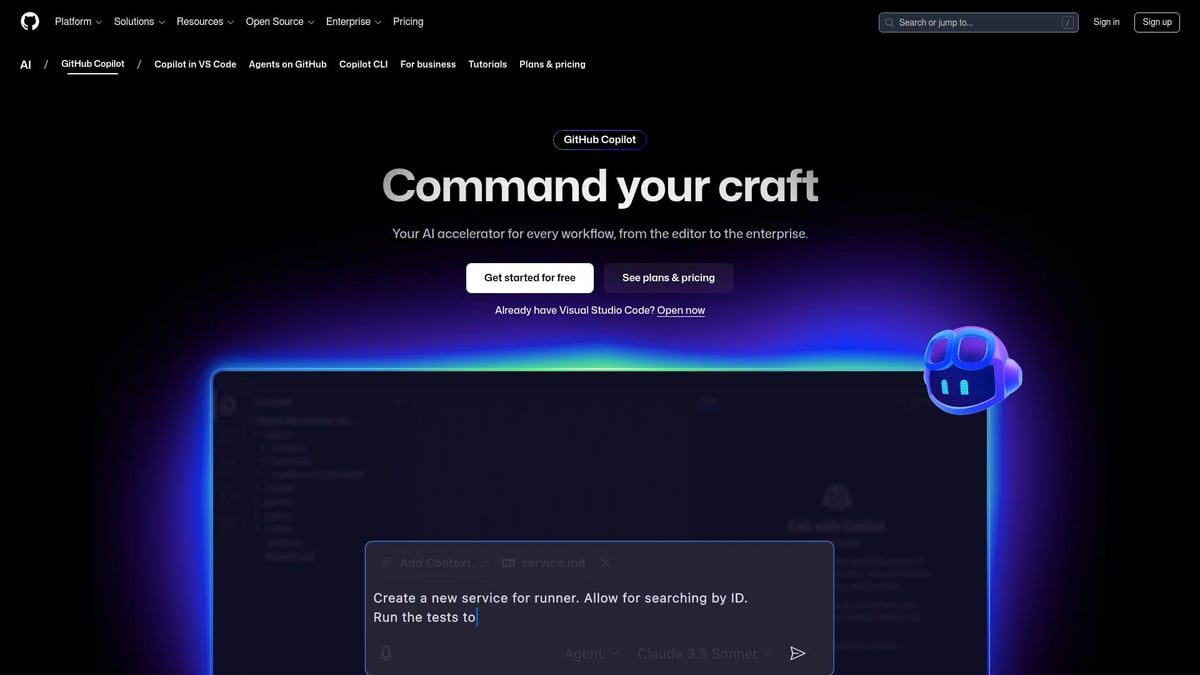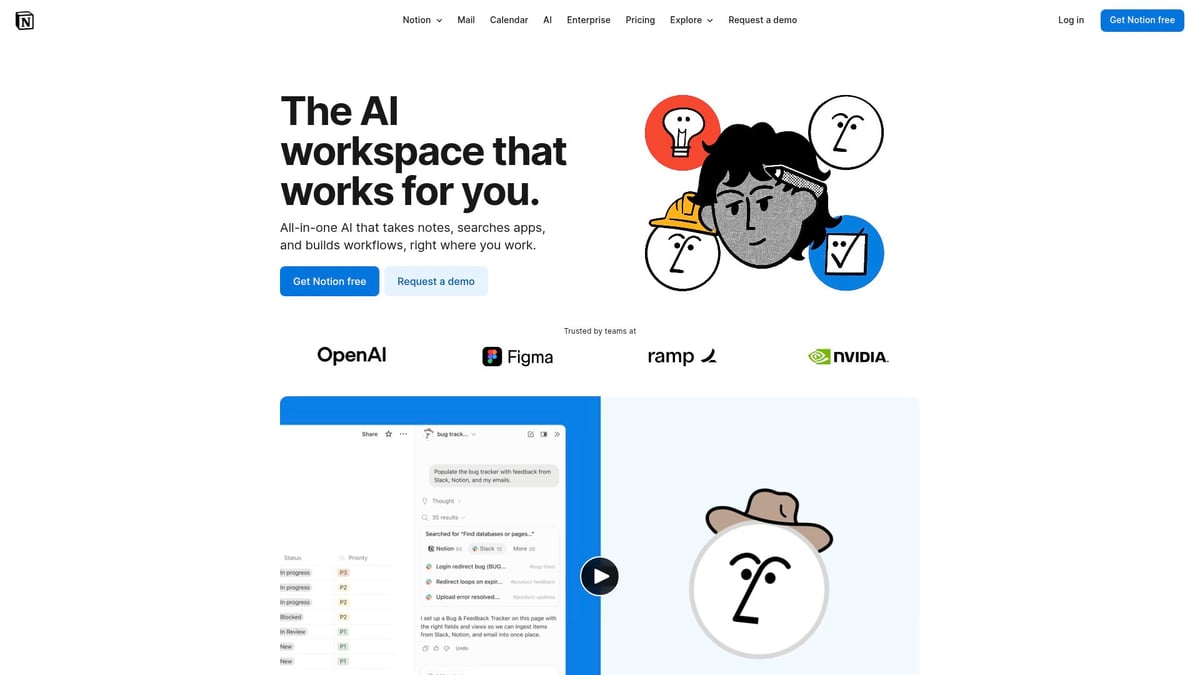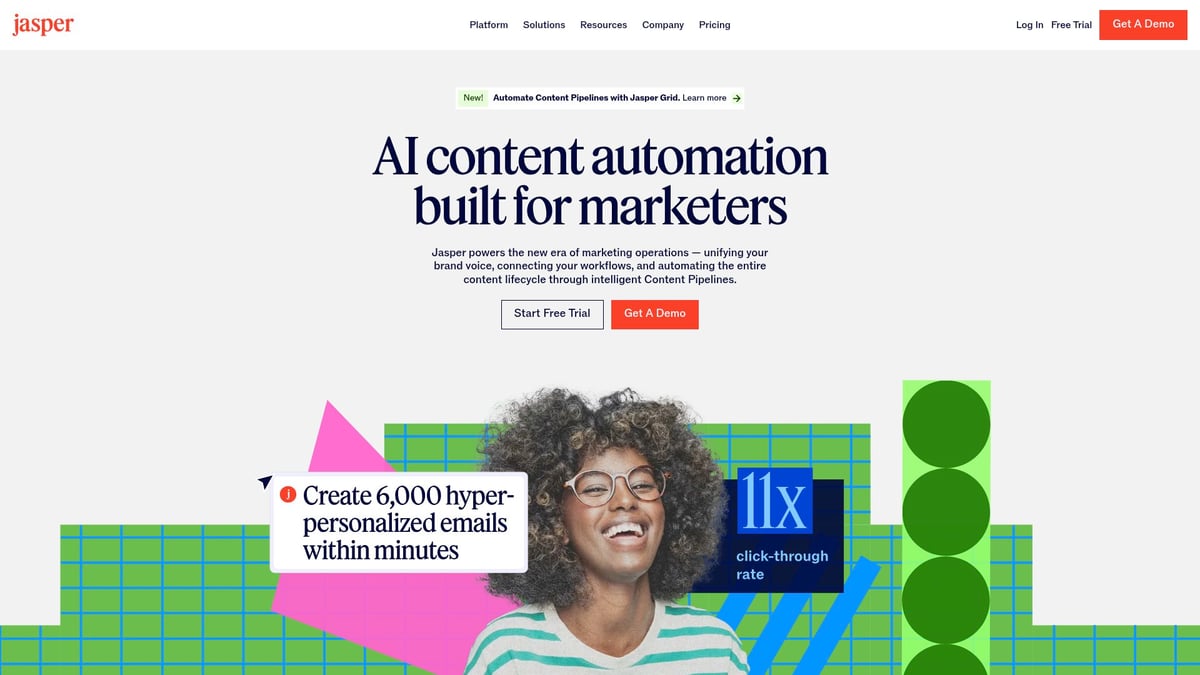Artificial intelligence is reshaping the business world at an unprecedented pace as 2026 approaches. Companies across every industry are harnessing AI to drive productivity, smarter decision-making, and personalized customer experiences.
Choosing the best ai tools for business has become essential for staying ahead of competitors and achieving measurable ROI. In this article, you will discover the top 8 AI tools set to boost business success in 2026.
We will explore key trends in AI adoption, core evaluation criteria, and provide actionable insights to help you select the right solutions for your business needs.
The Evolving Landscape of AI in Business
Artificial intelligence is reshaping how companies operate and compete. As we approach 2026, the best ai tools for business are not just optional—they are critical for growth and innovation. The evolving landscape is marked by rapid adoption, measurable value, and new challenges for organizations of all sizes.
Major Trends in AI Adoption for 2026
The best ai tools for business are driving a surge in AI adoption across every department, from marketing to HR and customer support. Generative AI is advancing quickly, enabling businesses to leverage text, image, code, and voice applications at scale. These tools are no longer limited to large enterprises—small and midsize businesses now access powerful AI solutions thanks to democratization and user-friendly interfaces.
There is a heightened focus on ethics, transparency, and data privacy, ensuring responsible AI use. According to AI adoption in 2025: Key statistics and industry trends, over 70 percent of organizations plan to increase their AI investments in 2026, highlighting AI’s role in driving automation and digital product innovation.
Key Benefits of Using AI Tools in Business
Implementing the best ai tools for business delivers a range of benefits that directly impact efficiency and growth. Automation of repetitive tasks frees up valuable human resources, while AI-powered analytics and forecasting improve decision-making at every level.
Personalization at scale becomes possible, enhancing marketing and customer engagement efforts. Companies also enjoy cost savings by reducing manual work and minimizing errors. For example, organizations leveraging AI have reported up to a 30 percent increase in productivity, gaining a clear competitive edge in their markets.
Challenges and Considerations When Choosing AI Tools
Choosing the best ai tools for business is not without challenges. Integration with existing systems can be complex, and ensuring data security, compliance, and privacy is essential. Staff training and change management are necessary to encourage adoption, as resistance can hinder success.
Balancing cost, scalability, and long-term ROI is vital, along with assessing vendor reliability and support. Notably, 40 percent of failed AI projects cite lack of user adoption as a primary issue, emphasizing the importance of a strategic approach and strong onboarding.
Future Outlook: AI’s Role in Digital Product Businesses
Looking ahead, the best ai tools for business are set to become catalysts for new digital product creation. AI-powered SaaS platforms, content generators, and automation solutions will empower solopreneurs and small teams to scale quickly. These tools enable seamless automation of sales, marketing, and customer support, helping digital product businesses thrive.
The market for AI-driven digital products is projected to double by 2026, unlocking new opportunities for innovation and growth. As adoption accelerates, businesses that harness AI will lead the next wave of digital transformation.
How to Evaluate the Best AI Tools for Your Business
Selecting the best ai tools for business in 2026 requires a strategic approach. With the AI landscape evolving rapidly, making informed choices ensures your investment drives real value.
Core Evaluation Criteria for AI Tools
When evaluating the best ai tools for business, begin with clear criteria. Does the tool address your specific challenges? Is the user interface intuitive for your team? Assess the compatibility with existing software and workflows.
Consider these core criteria:
- Functionality: Solves your business needs
- Usability: Easy for your staff to adopt
- Integration: Fits your current tech stack
- Scalability: Grows with your company
- Support: Reliable vendor assistance
For a broader perspective on essential business tools, explore digital tools for entrepreneurs to ensure your AI choices fit within your larger workflow.
Pricing Models and Cost Considerations
Understanding pricing is vital when choosing the best ai tools for business. Tools may offer subscription, pay-as-you-go, or freemium models. Review trial periods and be aware of potential hidden costs, such as onboarding or integrations.
| Pricing Model | Features | Typical Use Case |
|---|---|---|
| Subscription | Fixed monthly/yearly | Ongoing business needs |
| Pay-as-you-go | Per usage | Flexible, scalable use |
| Freemium | Limited free tier | Testing before scaling |
Calculate ROI by measuring time saved, increased revenue, or reduced errors. Businesses often report significant annual savings with effective automation.
Security, Compliance, and Data Privacy
Prioritize security and compliance when adopting the best ai tools for business. Verify how vendors manage data, their compliance with GDPR or CCPA, and whether they hold relevant security certifications.
Ask these questions:
- Does the tool use transparent AI models?
- Are data practices clearly documented?
- Is regular auditing available?
With 60% of enterprises ranking data privacy as their top concern, choose solutions that provide strong explainability and audit trails.
User Feedback and Real-World Case Studies
Real-world experiences are crucial for selecting the best ai tools for business. Seek reviews, testimonials, and case studies from similar industries. Peer feedback can reveal strengths and hidden challenges.
Look for examples where businesses achieved measurable outcomes, such as faster go-to-market or improved team productivity. Case studies often highlight how proper adoption leads to tangible ROI and sustainable growth.
Top 8 Best AI Tools for Business to Boost Success in 2026
As AI accelerates business transformation, selecting the best ai tools for business is crucial for staying ahead. Below, we present the leading platforms that empower companies to innovate, automate, and drive measurable results in 2026.
1. ChatGPT Plus (OpenAI)
ChatGPT Plus remains one of the best ai tools for business, helping organizations automate tasks and accelerate growth. Priced at $20 per user monthly in 2026, it offers advanced conversational AI, web browsing, code interpretation, and a robust plugin ecosystem.

Core Features:
- Natural language processing for chat, support, and content.
- Web browsing and real-time data retrieval.
- Code interpreter for data analysis and automation.
- Expanding plugin library for integration.
Key Benefits:
- Automates customer support, reducing response times.
- Generates reports, emails, and content at scale.
- Assists with ideation and brainstorming sessions.
Target Audience: SMEs, marketers, product teams, solopreneurs.
Pros:
- Versatile and adaptable for various business needs.
- Integrates smoothly with popular tools.
- Regular feature updates.
Cons:
- Rate limits may affect high-volume users.
- Requires prompt engineering for optimal performance.
Example: Companies leverage ChatGPT Plus as one of the best ai tools for business for automating FAQs, creating detailed reports, and developing new product ideas quickly.
2. Midjourney
Midjourney stands out as one of the best ai tools for business focused on visual content creation. Its plans start at $10 per month, delivering advanced AI-powered text-to-image generation.

Core Features:
- Transform text prompts into high-quality images.
- Emulate various artistic styles.
- Community-driven platform with collaborative features.
Key Benefits:
- Rapid prototyping for marketing visuals and product mockups.
- Enables unique branding assets for digital products.
Target Audience: Marketers, designers, agencies, digital product creators.
Pros:
- Diverse, customizable image outputs.
- Accessible through a web-based interface.
Cons:
- Subscription required for full access.
- Steep learning curve for prompt optimization.
Example: Brands use Midjourney, one of the best ai tools for business, to create unique ad creatives and generate visual content instantly for campaigns.
3. GitHub Copilot
GitHub Copilot is a leading choice among the best ai tools for business, especially for software development. At $10 per month for individuals and $19 for business users, it provides powerful AI code completion and suggestions.

Core Features:
- Real-time code suggestions in multiple languages.
- Bug detection and code fixes.
- Deep integration with VS Code and popular IDEs.
Key Benefits:
- Accelerates software development cycles.
- Reduces manual coding errors.
- Boosts productivity for development teams.
Target Audience: Developers, SaaS founders, startups, agencies.
Pros:
- Supports a wide range of programming languages.
- Seamlessly integrates into existing workflows.
Cons:
- Requires a GitHub account.
- Code suggestions may need review for security.
Example: Startups use Copilot, one of the best ai tools for business, to automate repetitive coding tasks and develop MVPs faster. For more insights on AI coding platforms, explore the Best AI for coding.
4. Adobe Firefly
Adobe Firefly, included in select Creative Cloud plans, has become one of the best ai tools for business seeking efficient design solutions. It leverages generative AI for image creation and editing.

Core Features:
- Text-to-image generation and content fill.
- Seamless integration with Photoshop.
- Professional-grade image editing tools.
Key Benefits:
- Dramatically reduces design time for campaigns.
- Empowers non-designers to produce professional visuals.
Target Audience: Marketing teams, SMBs, content creators, agencies.
Pros:
- Industry-standard results.
- User-friendly for all skill levels.
Cons:
- Requires Adobe subscription.
- Premium pricing for advanced features.
Example: Businesses rely on Adobe Firefly, one of the best ai tools for business, to create on-brand graphics for digital product launches and marketing campaigns.
5. Perplexity AI
Perplexity AI is quickly gaining recognition as one of the best ai tools for business research and market intelligence. Its free tier and pro plans make it accessible for various company sizes.
Core Features:
- Conversational search with natural language queries.
- Trusted source citations for every answer.
- Fast, accurate research capabilities.
Key Benefits:
- Streamlines competitor analysis and market research.
- Delivers transparent, trustworthy insights.
Target Audience: Entrepreneurs, analysts, researchers, marketers.
Pros:
- Provides clear, cited answers.
- Quick access to up-to-date information.
Cons:
- Customization options are limited.
- Feature set is evolving.
Example: Teams use Perplexity AI, one of the best ai tools for business, to gather market data rapidly, supporting product launches and content planning.
6. Notion AI
Notion AI integrates seamlessly into business workflows and is recognized as one of the best ai tools for business productivity. At $10 per user monthly as an add-on, it powers smarter documentation and project management.

Core Features:
- AI writing assistance for notes, summaries, and brainstorming.
- Automated task and project management.
- Deep integration with Notion’s workspace.
Key Benefits:
- Streamlines team collaboration and documentation.
- Automates repetitive tasks for greater efficiency.
Target Audience: Teams, project managers, entrepreneurs, product builders.
Pros:
- User-friendly and intuitive.
- Enhances organization and productivity.
Cons:
- Requires existing Notion subscription.
- Best suited for current Notion users.
Example: Digital product businesses use Notion AI, one of the best ai tools for business, to automate SOPs, manage product documentation, and facilitate brainstorming sessions.
7. Jasper AI
Jasper AI is a top contender among the best ai tools for business marketing and content creation. With plans starting at $39 monthly, it delivers high-quality AI-generated content for multiple channels.

Core Features:
- Content generation for blogs, ads, emails, and social posts.
- Brand voice customization for consistency.
- Templates for various formats and languages.
Key Benefits:
- Scales content marketing efforts.
- Saves significant time on copywriting and editing.
Target Audience: Content marketers, solopreneurs, agencies, digital creators.
Pros:
- Produces high-quality, on-brand outputs.
- Supports multilingual content needs.
Cons:
- Higher price point for advanced features.
- May require human editing for nuanced messaging.
Example: Entrepreneurs use Jasper AI, one of the best ai tools for business, to launch digital products with automated sales pages and engaging email sequences.
8. Altered Studio
Altered Studio is redefining audio content and is one of the best ai tools for business focused on voice technology. With a free trial and paid plans, it offers professional-grade voice transformation and text-to-speech.
Core Features:
- AI voice cloning and text-to-speech capabilities.
- Character voice bank for branding.
- Realistic voice options for localization and content.
Key Benefits:
- Streamlines creation of podcasts, courses, and ads.
- Enables unique audio branding for digital products.
Target Audience: Podcasters, course creators, marketers, agencies.
Pros:
- Easy to use, even for non-technical users.
- Wide range of voice options.
Cons:
- Some outputs may sound robotic.
- Free features are limited compared to paid plans.
Example: Digital product creators rely on Altered Studio, one of the best ai tools for business, to generate professional voiceovers for video courses and marketing materials.
Maximizing ROI: Implementation Strategies for AI Tools in 2026
Adopting the best ai tools for business is only the first step. To truly maximize ROI in 2026, organizations must focus on structured implementation, seamless integration, and ongoing evaluation. Let us explore practical strategies that ensure your investment in the best ai tools for business translates directly into measurable business value.
Best Practices for Onboarding and Adoption
To unlock the full potential of the best ai tools for business, develop a clear implementation roadmap. Define key milestones and assign responsibilities to ensure accountability. Offer comprehensive staff training sessions, and encourage experimentation through sandbox environments.
Start with small pilot projects before expanding tool usage across departments. Appoint internal AI champions who can advocate for adoption and help troubleshoot early challenges. Structured onboarding leads to higher engagement and smoother transitions. According to AI adoption in small businesses, nearly all small businesses now leverage AI-enabled software for efficiency and cost savings, highlighting the importance of robust onboarding practices.
Integrating AI Tools with Existing Workflows
Successful integration is critical for extracting value from the best ai tools for business. Begin by assessing your current tech stack for compatibility and identifying any gaps. Use APIs or native integrations to connect AI solutions with tools like CRM, project management, and communication platforms.
Automate repetitive tasks, freeing teams to focus on higher value activities. Schedule regular workflow reviews to optimize processes and address any bottlenecks. As global adoption of AI continues to surge, as shown by recent Global AI adoption statistics 2025, seamless integration remains a top priority for businesses seeking competitive advantage.
Measuring Success: KPIs and Analytics
Define clear objectives before rolling out the best ai tools for business. Establish key performance indicators, such as cost savings, productivity gains, and revenue growth. Monitor tool usage, time saved, and user satisfaction regularly.
Collect feedback from team members to identify areas for improvement. Use dashboards and analytics features within your AI tools to track progress and visualize ROI. Companies that systematically measure impact can quickly adapt their strategy and maximize the value delivered by the best ai tools for business.
Overcoming Common Pitfalls and Ensuring Scalability
Avoid adopting the best ai tools for business simply for the sake of innovation. Align every tool with tangible business goals and workflows. Monitor for issues like data drift or model bias, and schedule periodic audits of tool performance.
Plan for scalability by choosing flexible solutions that can handle increased demand or seasonal spikes. Regularly evaluate vendor support and reliability to ensure long-term success. Businesses that prioritize strategic alignment and scalability are best positioned to achieve sustainable growth with the best ai tools for business.
AI Tools and the Future of Digital Product Businesses
Artificial intelligence is fundamentally reshaping the landscape for digital product businesses in 2026. The rapid evolution of the best ai tools for business is unlocking new possibilities, empowering entrepreneurs to launch, scale, and innovate faster than ever. As AI solutions become more accessible and sophisticated, the opportunities for creative growth and operational efficiency are expanding for teams of all sizes.
How AI Empowers Digital Product Entrepreneurs
The best ai tools for business are enabling digital product entrepreneurs to automate product creation, streamline marketing, and simplify sales processes. With AI, solopreneurs can now handle tasks that once required large teams, from generating course content to designing visual assets and managing customer support.
AI-driven platforms also accelerate the process of validating and experimenting with new product ideas. For example, tools that generate landing pages, analyze market demand, or automate email campaigns allow entrepreneurs to test, iterate, and launch with minimal manual effort. Those interested in practical strategies can explore Building digital products for more insights into leveraging AI for product innovation.
Emerging AI-Driven Business Models for 2026
Business models powered by the best ai tools for business are gaining momentum in 2026. We are seeing a surge in AI-powered SaaS offerings, intelligent marketplaces, and information products that deliver personalized experiences at scale.
Subscription-based digital products are now enhanced by AI, providing automated support, dynamic content, and tailored recommendations. Personalized learning platforms, AI-driven coaching, and automated marketing tools are helping businesses increase recurring revenue and improve customer retention. These innovations are transforming how digital product creators monetize their expertise and deliver value to users worldwide.
Key Trends to Watch and Prepare For
Looking ahead, several trends will shape how the best ai tools for business continue to impact digital product ventures. Ethical AI practices and transparency are becoming crucial as customers demand responsible use of data and algorithms. The rise of no-code AI platforms is making advanced technology accessible to non-technical founders, lowering barriers to entry.
There is also a growing need for AI literacy in business roles, as teams must understand how to select, implement, and monitor AI solutions effectively. According to the State of generative AI adoption in 2025, adoption rates are climbing rapidly, with 80% of digital product businesses expected to rely on at least one AI tool in daily operations by 2026.
As you’ve seen, the right AI tools are transforming how entrepreneurs like us build, automate, and scale digital product businesses. Whether you’re aiming to streamline your workflow, boost productivity, or turn your expertise into a thriving brand, the possibilities for growth in 2026 are remarkable. If you’re ready to start your own journey and want step-by-step guidance on building a future proof digital product business, I encourage you to Get Started.
Let’s take your knowledge and turn it into lasting success—one smart move at a time.